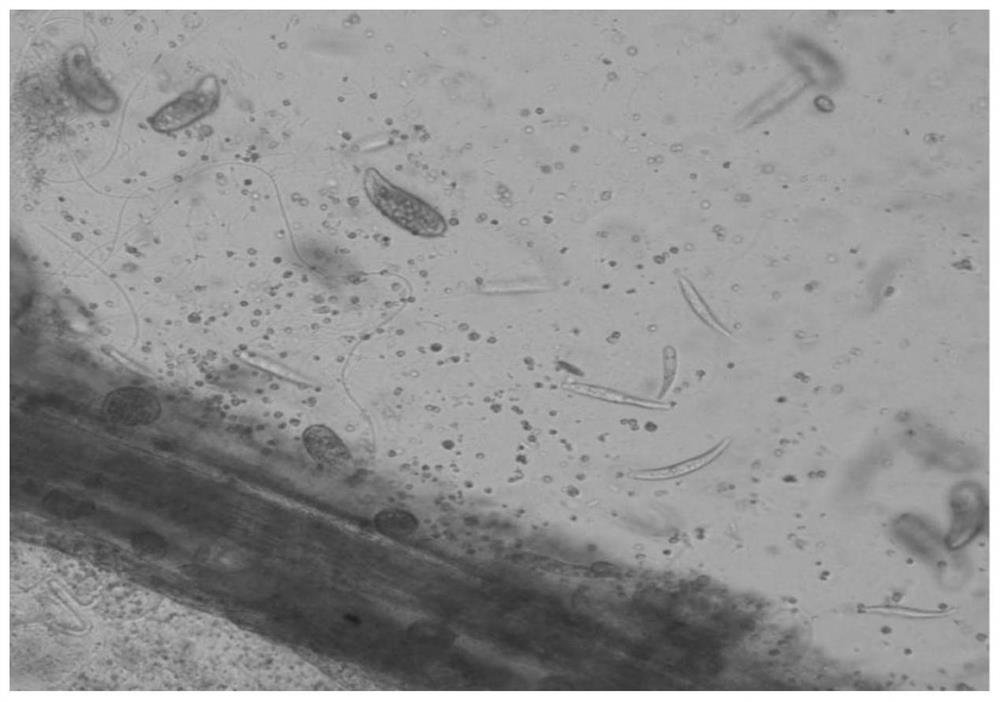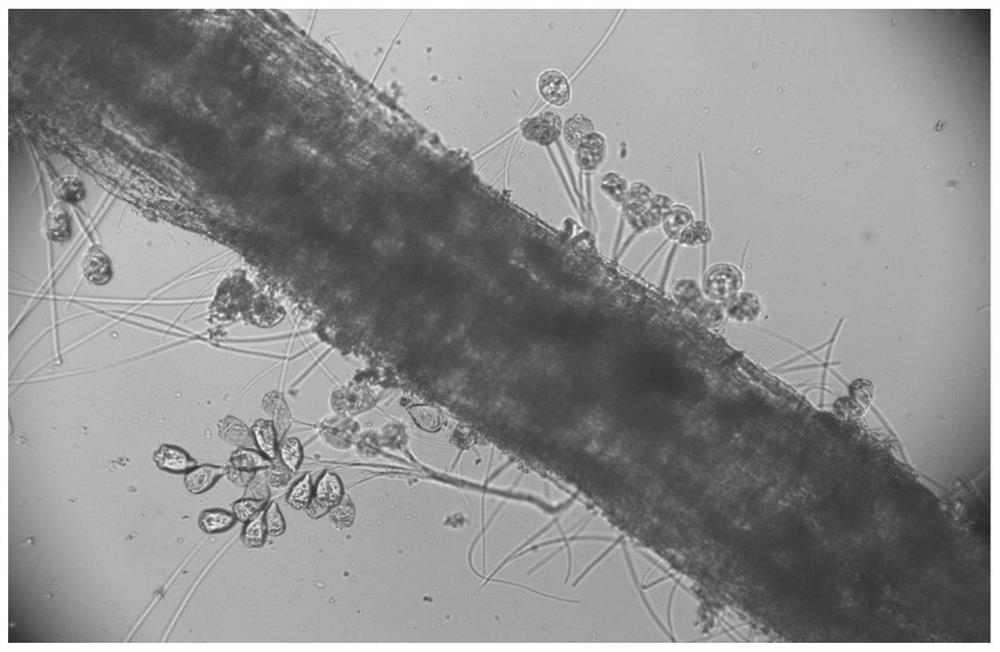Biofilm carrier and domestication method thereof
A biofilm carrier and carrier technology, applied in the field of environmental science, can solve problems such as narrow scope of action, and achieve the effects of avoiding frequent water changes, less investment, and improving survival rate
- Summary
- Abstract
- Description
- Claims
- Application Information
AI Technical Summary
Problems solved by technology
Method used
Image
Examples
Embodiment 1
[0065] This example provides a method for inoculating and culturing clams with four corners.
[0066] (1) Preparation of water body for inoculation:
[0067] Prepare a separate water storage tank with a volume of 50L, add 29L of seawater for culture and 1L of shrimp culture pond water and mix well, add 500mL of Nannochloropsis algae liquid, keep the water temperature at 17°C, and store for 5 days with dissolved oxygen at 7mg / L. Avoid direct sunlight during preparation.
[0068] (2) Target carrier temporary support
[0069] Brush the surface of the four-cornered clams transported back to the laboratory, select individuals with the same size and no damage, and temporarily raise them for 6 days. The volume of the temporarily raised water tank is 50L, add 30L of seawater, and 80 four-cornered clams. Keep the dissolved oxygen at 7 mg / L, and change the water once a day. If there is a dead body in the tank, immediately pick out the dead body and change the water. No bait was cast...
Embodiment 2
[0077] The difference between this example and Example 1 is that the shrimp culture pond water (1L) in step (1) was replaced with eutrophic nearshore seawater (1L), and the nearshore seawater was collected from the seaside of Yantai City.
[0078] Through 2 weeks of observation, during the first few days (4th day) of domestication, the number of sessile ciliates of Protozoan Ciliateta was relatively small, and the number of swimming ciliates was more. As the culture time progressed, when the micro organisms in the sludge gradually adapted to the new water quality and growth environment (7th day), sessile ciliates began to appear in large numbers, accompanied by a very small amount of swimming ciliates. At this time, the cultivation has been basically completed, and the inoculation is considered successful. At the late stage of culture (14th day), the sessile ciliates had been dominant. Microscopic examination was carried out on the gills and other tissues of the four-cornered...
Embodiment 3
[0081] The four-cornered clam successfully inoculated in Example 1 was used as the mother generation, and the uninoculated four-cornered clam was subcultured.
[0082] Add 30 liters of seawater to the water tank, put 40 successfully inoculated female four-cornered clams and 40 uninoculated four-cornered clams, keep the dissolved oxygen at 7 mg / L, feed 650 mL of trigonaria per day, and change the water every 24 hours. Eliminate dead individuals.
[0083] On the 7th day, the offspring four-horned clam was taken for microscopic examination, and it was found that bell worms appeared in the border (see Figure 7 ) and Cyclops (see Figure 8 ), and occasionally a small amount of polyshinites can be seen (see Figure 9 ) and weedworms (see Figure 10 ), considered successful inoculation. On the 14th day, the progeny of the four-cornered clam was taken for microscopic examination, and the sessile ciliates were absolutely dominant. Microscopic examination was carried out on the gi...
PUM
 Login to View More
Login to View More Abstract
Description
Claims
Application Information
 Login to View More
Login to View More - R&D
- Intellectual Property
- Life Sciences
- Materials
- Tech Scout
- Unparalleled Data Quality
- Higher Quality Content
- 60% Fewer Hallucinations
Browse by: Latest US Patents, China's latest patents, Technical Efficacy Thesaurus, Application Domain, Technology Topic, Popular Technical Reports.
© 2025 PatSnap. All rights reserved.Legal|Privacy policy|Modern Slavery Act Transparency Statement|Sitemap|About US| Contact US: help@patsnap.com



